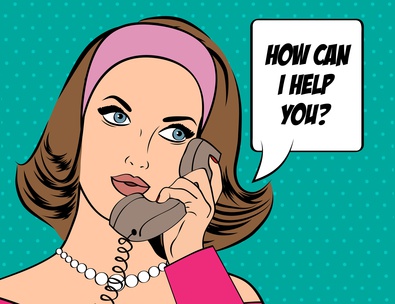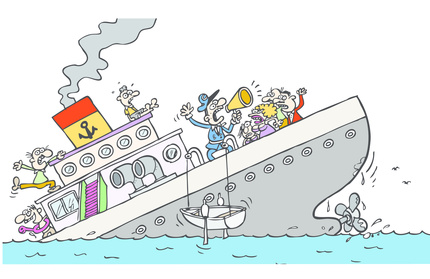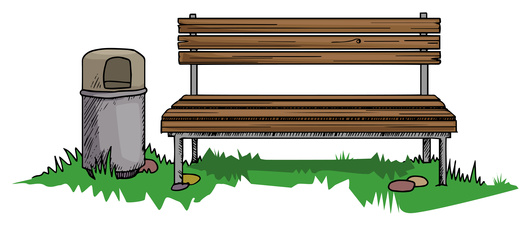
Dear Digby,
I’m not sure which direction to go in my life, so I’m dabbling in a bit of everything and feeling overwhelmed! I’m an introvert with limited amounts of energy, so I need a clear sign. What can I do to determine what would be the best use of my time and energy?
Pooped
Dear Pooped:
I hear you, and I sympathize. I, too, am an introvert with limited energy. I take on too much, and wonder why I’m spent at the end of the day, unable to do anything more than watch reruns of The Bachelor in my imagination. When I skip my coveted downtime on Sundays—hanging in the park like some beached whale, reading a novel and eating chocolate, my anxiety ramps up. I start the work week on limited reserves, adding more stress, exacerbating my symptoms. Then I scan the environment, both internal and external, for the cause of my anxiety, magnifying it.
My advice: allow yourself downtime every day—even a half hour!—and for at least half a day on the weekend. During that downtime, do relaxing activities: doodle, color, read, listen to music, meditate, take a walk, spend time in nature, play, hang out with one or two close friends. Too many people in your orbit will drain you. It’s okay to be a lazy-bones. In fact, you need it, to recharge.
Now, for a clear sign as to where your limited stores of energy would be most beneficial for your success, ask yourself these questions:
What does success look like to me?
Success means different things to different people. Everyone knows that. But not everyone knows what success means for themselves. Is success writing a novel and submitting it for publication? Getting hired by a specific company? Starting your own business? Recording your own music? Is success devoting time to a spiritual path? Teaching, coaching, or motivating others? What gets your juices flowing in a good way?
What, specifically, am I doing?
If success is still a vague concept to you, imagine yourself doing things that make you feel accomplished. Are you writing? If so, what are you writing? A blog? A newsletter? A screenplay? Are you designing a web page or brochure? Visualize the activities that bring fulfillment to you.
What are the steps I need to take to make that happen?
Once you have a solid idea of what success means to you, jot down all the steps to reach that goal. List them in reverse. Start with the final step, then ask yourself: in order for that to happen, what do I need to do? And before that, what? And before that, what? And keep asking until you get to the very first step you need to take. For example, your list might look something like this:
Receive a call from my agent that a publisher accepted my book
Submit edited manuscript to my agent
Edit manuscript
Revise manuscript
Get an agent
Contact possible agents
Research possible agents
Get a copy of Guide to Literary Agents
…and so on, to your very first step:
Write an outline for my novel.
Now that you know that first teensy-weensy step, it’s time to do it. Yeah, get up off the lawn, you beached whale. Ask yourself:
What time of day am I most productive?
For me, it’s 10 am – noon. Fat lot of good that does if my goal is a creative project, since four days a week I’m working my day job during that time. But that leaves three days a week that I can be productive doing my own projects. Are you a morning person? Or are you sharper after dinner? Surely you can find two hours, or one hour, or fifteen minutes of productive time in your day. Block that time out on your schedule.
What time of day am I the least productive?
For me, it’s afternoons. Right around 3:00, when I should be getting a nap and cookies instead of working. Maybe for you, mornings are snooze-ville. Schedule non-brain draining activities during that time. Answer emails. Return phone calls. Watch webinars. Do chores. Exercise. Or do the tasks on your list that don’t require a lot of brain power, like reading e-newsletters or books related to your field.
Give your project a trial run
Devote three weeks to see how it feels to work toward your goal. Twenty-one days, that’s all. Every day, check your energy barometer. Do you feel juiced up with excitement, or crispy from adrenaline surges? What is your body telling you? As introverts we’re super in touch with our bodies, so all we need to do is trust our instincts.
By giving yourself a fair shot, trying something out for 21 days, you’ll find your answer. Either it’s the right direction to take, or it’s the Wrong Way. If it’s wrong, then let it go and focus on something else. Maybe during those 21 days you discovered a side road that looked promising. Go explore that now for 21 days.
But I just want a clear sign. Now, not 21 days from now!
Okay, calm down. Ask yourself this:
What do I want?
If you don’t know, pick something. Anything. Then find a comfortable place by yourself, turn off all devices, put up the “gone fishing” sign, close your eyes, mentally relax your muscles, and visualize yourself doing that one thing. How does your body feel? Sit with it for awhile.
If you’re torn between possibilities, do the visualization for each one, checking in with your body’s signals at the end of each exercise. Jot down any buts you come up with:
But I can’t do that because_________
But I need _______ before I can do ________.
But I don’t have the chops.
But I’m not ready.
But it’s impossible.
Through the day, be aware of solutions that present themselves in whispery thoughts, or from something you read, or something someone told you. Or ask a friend what they would do to overcome these temporary obstacles.
Still not clear?
Pretend you know the answer. A friend recommended this to me recently. Say, “If I knew the answer, it would be ______.”
How does that feel?
Bottom line:
You have your answers. Sometimes you won’t like the answers, but you’ll know, deep down, what’s true. Sometimes the answers are buried under all the chatter in your brain, or lost in the swirl of activities you use as distractions. Sometimes you need others to help nudge them out. But if you settle down, and trust those flashes of instinct, you’ll find your way.
And when you do, enjoy the journey. With plenty of rest stops along the way. Now, where’s my beach blanket?
Takeaways this week:
For more tips on finding your ideal productivity time, check out Two Awesome Hours: Science-Based Strategies to Harness Your Best Time and Get Your Most Important Work Done, by Josh Davis.
To learn productivity tips from a guy who spent a year experimenting on the subject, read The Productivity Project: Accomplishing More by Managing Your Time, Attention, and Energy, by Chris Bailey.


